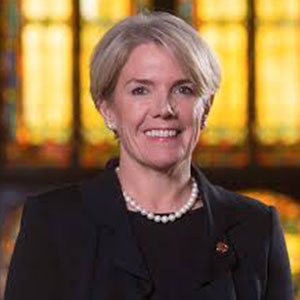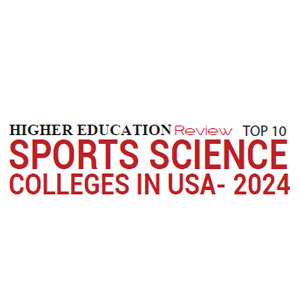Springfield College: Transforming Passion Into Expertise In Sports Science
By Mary-Beth A Cooper, President
Over the past few years, sports science has become revolutionized in American higher education. This physiologically based interdisciplinary field of study, including physiology, biomechanics, psychology, and nutrition, has achieved special prominence in recent years as the importance of sports to public health has achieved greater prominence. As a result, universities have increased their curricula to include specialized programs designed to give students the training necessary to help improve athletic performance and create wellness.
However, students who are majoring in sports science face some hurdles. Technology in sports is advancing so fast, that they need to keep learning and adapting. The ability to integrate theoretical knowledge with practical application depends on access to state-of-the-art facilities and real-world experience. Moreover, graduates of this program must be able to demonstrate not only academic credentials but also hands-on experience and professional performance to compete in this segment.
Through its combination of sports science education, Springfield College is confronting these challenges. The college’s programs are based on the Humanics philosophy, which integrates education of the whole person in spirit, mind, and body, and which views human performance holistically.
State-of-the-Art Facilities
Last year, the institution inaugurated the Health Sciences Center, a new building with cutting-edge resources for its students. The focus of this facility is advanced health and wellness technologies; students have the ability to use modern laboratories and equipment necessary to bridge theory with practice. This kind of environment allows graduates to be ready to handle the technological advancements found in the sports industry.
Experiential Learning Opportunities
Springfield College values experiential learning and relies on internship and hands-on experiences throughout its sports science curriculum. The college works with numerous athletic organizations and health institutions to allow students to apply what they have learned in the classroom in real-world settings. Beyond professional networking and employment prospects thereafter, this approach helps develop practical skills at the same time.
Commitment to Diversity and Inclusion
Springfield College remains steadfast in its commitment to fostering a diverse and inclusive campus community. By promoting equality and fair treatment for all, the college ensures that students from various backgrounds feel supported and valued. This inclusive environment enriches the educational experience, preparing students to work effectively in diverse professional settings.
Integration of Technology in Education
Springfield College understands the need for technology in today’s sports science programs and has added digital tools and resources to its programs. This integration provides students with the ability to stay current with what is happening in the world of technology and what is new and innovative in the field of sports to ensure they can use technology to improve athletic performance or athletic health outcomes.
Focus on Research and Scholarship
The sports science department focuses on student and faculty engagement in research and scholarly activities at Springfield College. The college strengthens the advancement of knowledge as it fosters a culture of inquiry and critical thinking, and in turn prepares students for a career in research, academia, or advanced professional practice.
Support Services and Career Development
Services of robust support to sports science students are available at the college in the form of academic advising, counseling, and career development services. These services are specially designed to meet the specific challenges faced by the students and are provided with guidance and support specific to the needs of the individual students.



